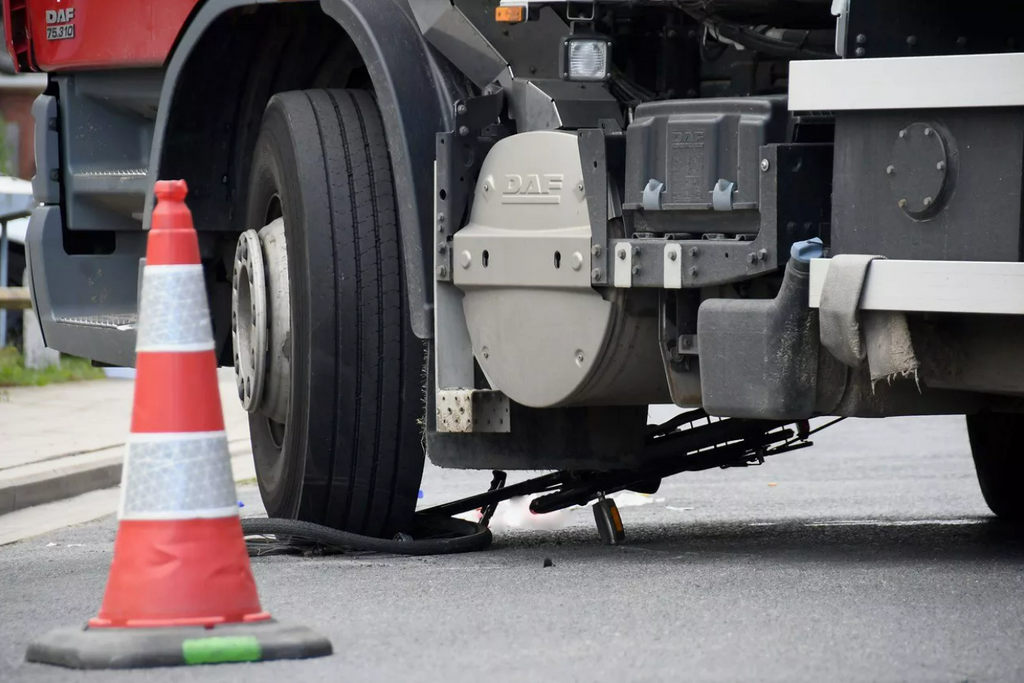The number of blind spot accidents increased by a third in 2022 compared to the previous year, show figures by Flemish Mobility Minister Lydia Peeters. In about two-thirds of cases, the victim was a vulnerable road user.
While several Covid-19 measures such as teleworking were still in place in 2021, causing fewer people to be on the road, a 35% increase in blind spot accidents in 2022 should make people's alarm bells go off, said Flemish MP for the socialist Vooruit party, Annick Lambrecht.
"More than 35% more blind spot accidents in 2022 compared to a year earlier, that shows the minister urgently needs to step up a gear," she said.
Minister Peeters acknowledged the importance of focusing on avoiding blind spot accidents but also indicated that a lot is already being done. "We are trying to prevent accidents by focusing on infrastructure, road user education and awareness-raising."
Vulnerable road users
In 2022, it concerned 212 accidents – a figure that includes all blind spot accidents between vulnerable road users and motorised vehicles, as well as between two motorised vehicles.
In about two-thirds of the accidents, the victim was a vulnerable road user (a pedestrian, cyclist or scooter rider) – an increase of 25%. Cyclists are particularly affected more often: 62% more than a year earlier. More than seven in ten victims of blind spot accidents in 2022 were cyclists.
Therefore, MP Lambrecht suggests working on sufficient cycling infrastructure, with wide and segregated cycle paths that meet all Flemish standards. "This is often not yet the case. There should also be a 30 zone in every built-up area where there are no cycle lanes."
Flanders is certainly not losing sight of cyclists and other vulnerable road users, stressed Peeters. "This legislature, we are investing €1.4 billion in cycling infrastructure and especially in separate cycle paths." Additionally, school children as well as truck drivers will also receive training on blind spots and how to avoid accidents.
Related News
- Over 30% of commutes should be made by bicycle in Flanders by 2040
- Good Move, fair move? Brussels’ mobility plan under attack
- Cyclist deaths at decades-long high with more than 100 fatalities last year
Last year, four people died in a blind spot accident – twice as many as the previous year. The number of seriously injured people in a blind spot accident went up 113% (from eight to 17) and there were also 25% more slightly injured victims (from 95 to 119).
"We can also bring down these figures by making minor adjustments. No tunnels should be built, but lights should be adjusted," Lambrecht said. "We should aim for conflict-free intersections where the lights are organised in such a way that pedestrians and cyclists are allowed to cross first and only then is it the turn of motorised traffic. They should be separated from each other."
Every year, an average of about 125 intersections are made "conflict-free" as much as possible. "In 2022, that were as many as 142 intersections; that is more than one intersection every three days. We therefore choose to prioritise road safety over traffic flow. We prefer safe vulnerable road users, then motorists will just have to wait a few seconds longer for a red light."
Asking for problems
The Cyclists' Union is not surprised by the figures of blind spot accidents, Wies Callens told VRT. "We see that there are still many intersections with conflicts. Where cyclists who want to drive straight ahead have green at the same time as motorised traffic that wants to turn right. That is asking for problems."
They are happy that Peeters is investing more in infrastructure, but do not really see that as a solution to blind spot accidents. "It's about choosing to make intersections conflict-free and to put road safety ahead of the flow of motorised traffic. That does not have to cost a lot of money."
The Cyclists' Union is further considering circulation plans that could, for example, ban trucks or safer trucks in general. "These would be trucks where the driver sits lower and therefore has better visibility, as is already used in London."

